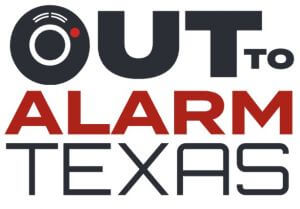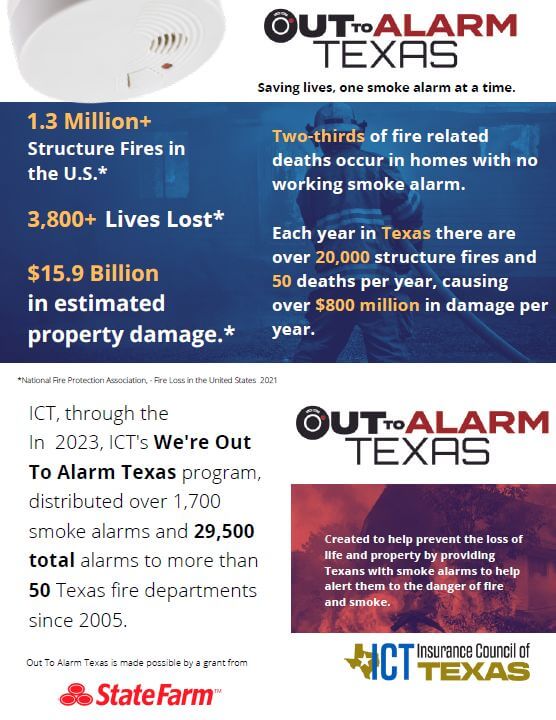Out to Alarm Texas
Saving lives, one smoke alarm at a time.


The "Out to Alarm Texas" initiative was established to mitigate the loss of life and property by distributing smoke alarms to residents in Texas through their local fire departments. The Insurance Council of Texas (ICT) initially collaborated with the Texas State Fire Marshal's Office (SFMO) to identify cities with high fire-related fatalities. As a testament to its success, the "We're Out to Alarm Texas" program quickly garnered interest from other municipalities, leading to its expansion.
Since 2005, the program has grown to over 50 fire departments across Texas and 29,000 smoke alarms distributed statewide.
The 2021 Fire Loss in the United States report from the National Fire Protection Association (NFPA) underscores the pressing need for enhanced fire safety measures:
- Almost three out of five home fire deaths were caused by fires in properties with no smoke alarms (41 percent) or smoke alarms that failed to operate (16 percent).
- The risk of dying in reported home structure fires is 55 percent lower in homes with working smoke alarms than in homes with no alarms or none that worked.
The success and impact of the "Out to Alarm Texas" program is made possible through a generous grant from State Farm.


Fire departments must be willing to install donated smoke alarms into homes on a first-come/first-served basis. Firefighters will install the new alarms and inspect each home to make sure other smoke alarms are working properly and point out potential fire hazards. Each fire department keeps track of where they have installed the smoke alarms so that firefighters can determine if the alarms were instrumental in saving lives or property.
The SFMO maintains a list of fire departments with smoke alarm programs. If your city isn’t listed, contact your local fire department and inquire if they participate in a smoke alarm program.
Click here for additional information on the value of a working smoke alarm in your home from the NFPA.
